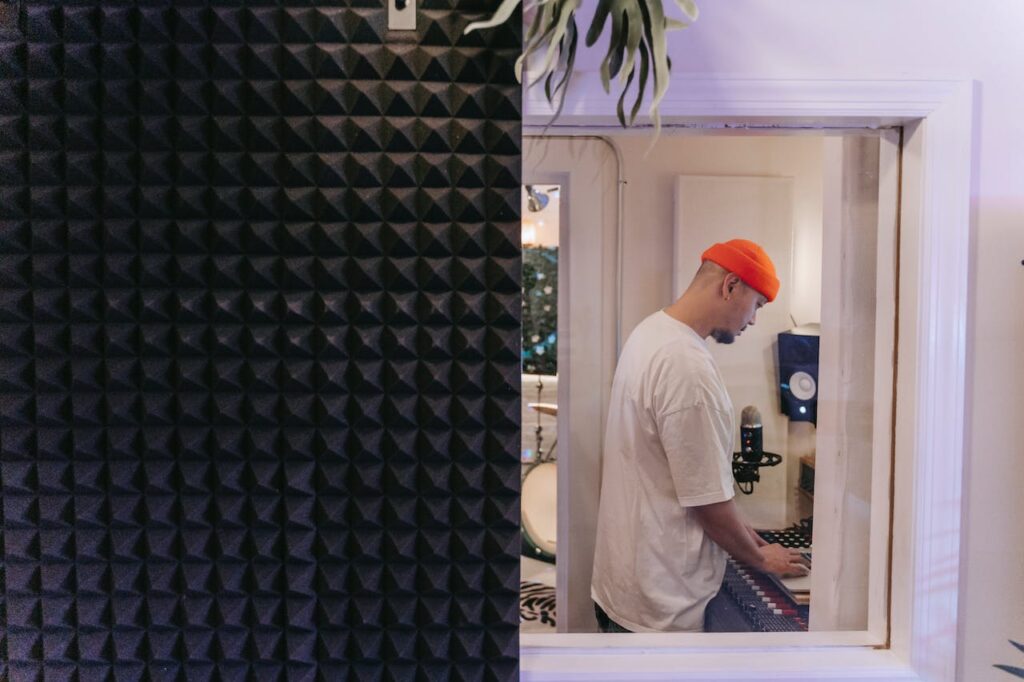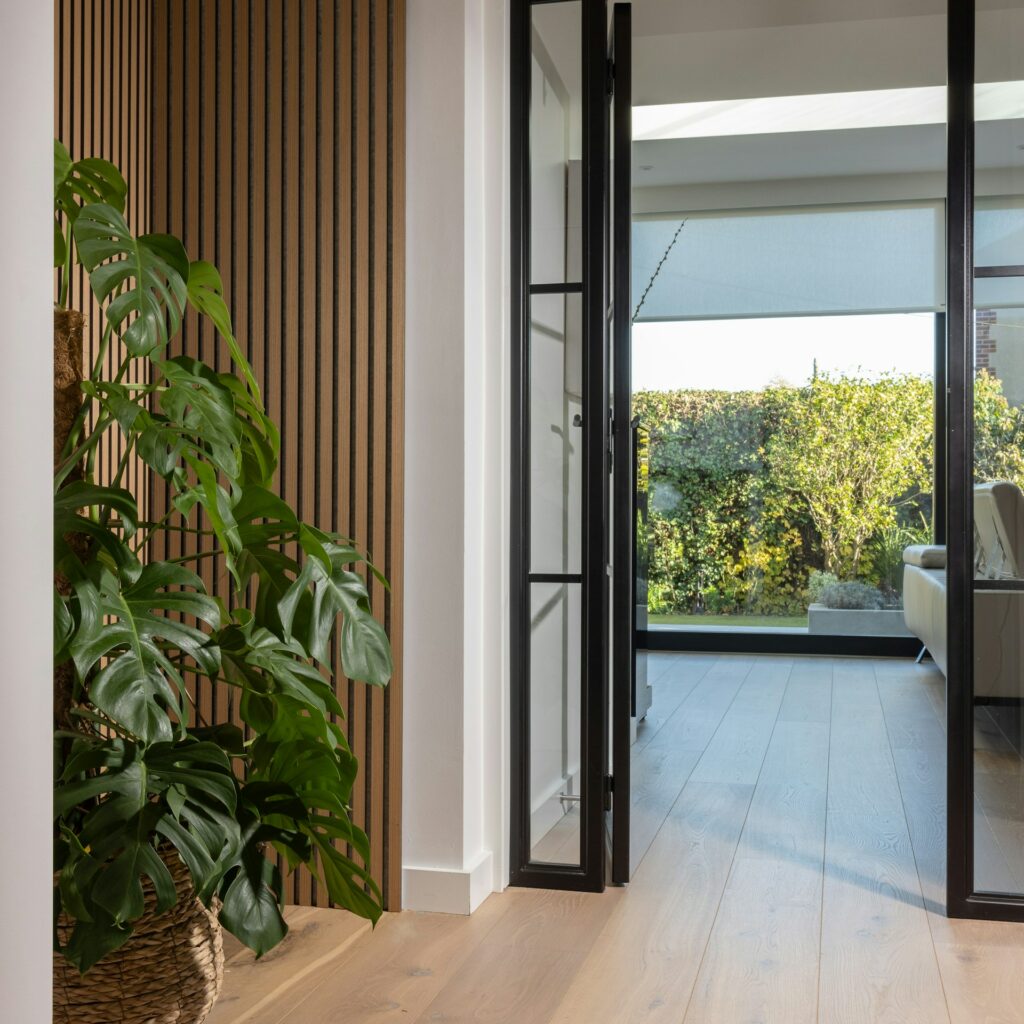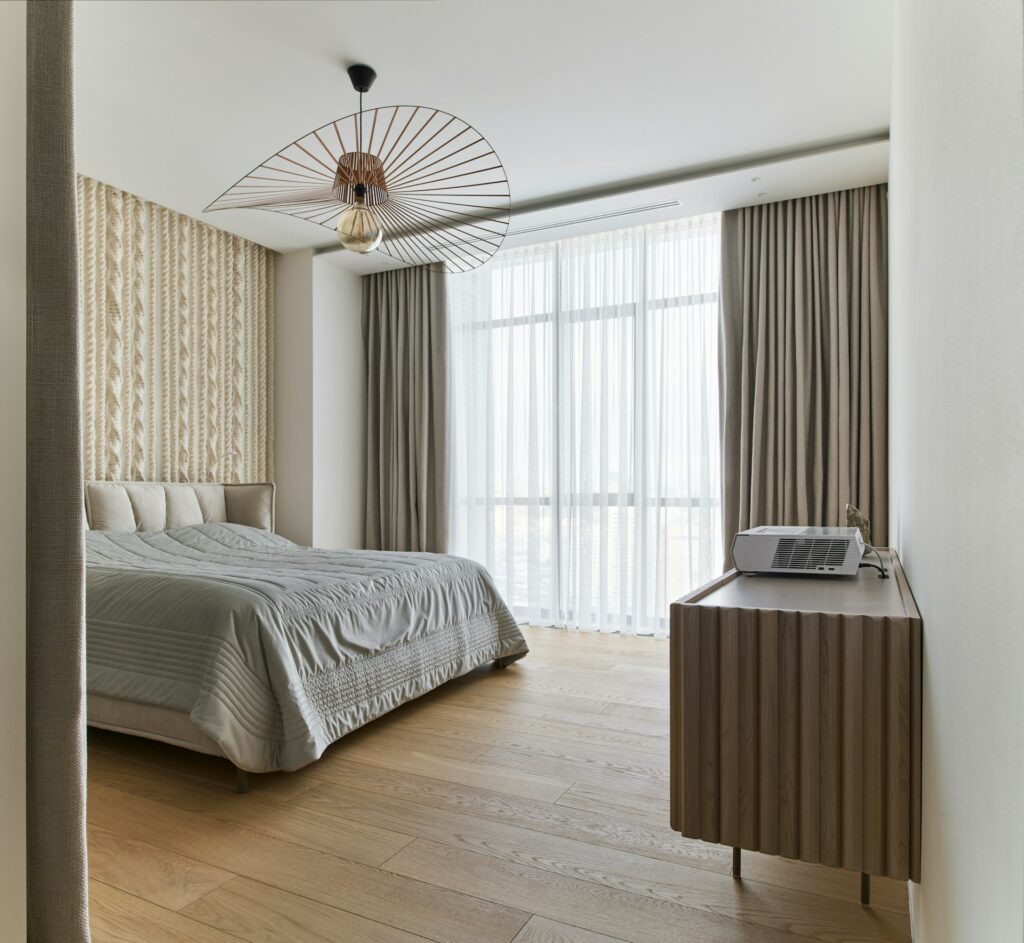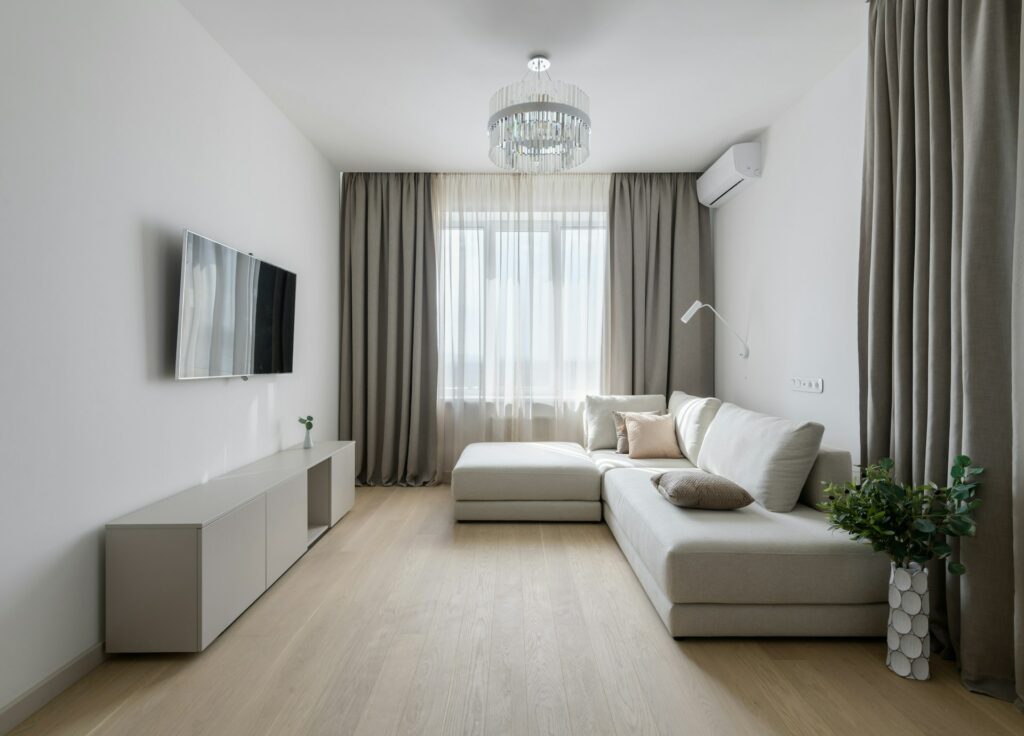In today’s ‘always on’ world, where noise pollution is an ever-growing concern, creating a serene and sound-managed environment has become a necessity for many. Whether it’s the bustling traffic outside, the hum of machinery in commercial spaces, or the need for pristine audio in recording studios, the quest for tranquillity and acoustic clarity is universal.
This is where the concepts of soundproofing and sound absorption come into play, each serving a unique purpose in the battle against unwanted noise. Whether you’re looking to silence the world outside or perfect the sound within your space, two pivotal techniques that could help you transform your environment into a haven of peace, quiet and acoustic perfection.
Soundproofing Vs. Sound Absorption
Understanding Soundproofing
Soundproofing is the process of reducing or blocking out sound transmission between spaces. It involves implementing measures to minimise the transfer of airborne or impact noise, ensuring a quieter environment. Soundproofing materials and techniques are designed to create barriers that prevent sound waves from passing through walls, floors, and ceilings. These barriers include adding mass, using insulation materials, sealing gaps, and installing soundproof panels.
Soundproofing is commonly used in residential buildings, commercial spaces, and recording studios to create a more peaceful and private atmosphere. Decibel offers high-quality soundproofing panels that effectively reduce noise transmission for various applications.
Understanding Sound Absorption
Sound absorption refers to the process of absorbing sound waves and reducing their reflection within a space. Unlike soundproofing, which focuses on blocking or minimising sound transfer, sound absorption is aimed at controlling the acoustics within a room.
By using materials that have high levels of sound absorptive properties, such as acoustic foam or diffusers, reverberations and echoes can be minimised. Sound absorption not only improves the overall sound quality in a room but also reduces noise levels by preventing sound waves from being reflected back into the space.



Key Differences Between Soundproofing & Sound Absorption
Soundproofing and sound absorption are two distinct methods used to address noise-related issues in different spaces. The key difference lies in their primary objectives and how they affect sound transmission within a room. Soundproofing is designed to prevent sound from entering or leaving a space by blocking or minimising its transmission through barriers such as walls, doors, windows, and insulation.
On the other hand, sound absorption focuses on reducing echoes and reverberation within a space by using materials that absorb sound waves, preventing them from bouncing off surfaces. While both techniques contribute to creating a quieter environment, understanding their unique purposes can help you choose the most appropriate solution for your specific needs. For reliable and high-quality soundproofing panels, Decibel offers a range of options that can effectively block unwanted noise.

Choosing The Right Solution For Own Unique Your Needs
When it comes to choosing the right solution for your soundproofing or sound absorption needs, it is important to assess the specific requirements of your space. If you are dealing with excessive noise from exterior urban sources, such as traffic or construction, soundproofing panels are a great option. They can effectively block and reduce noise transmission.
On the other hand, if your goal is to improve the acoustic quality within a room by reducing echoes and reverberation, sound absorption materials like acoustic foam or diffusers can be more suitable. Consider factors such as budget, desired level of noise reduction, and aesthetic preferences when making your decision. Decibel offers a wide range of high-quality soundproofing panels that can be customised to meet your specific needs.
Common Soundproofing & Sound Absorption Methods
When it comes to soundproofing, there are several common methods that can be used to reduce noise transmission. These include using soundproof insulation in walls, floors, and ceilings, sealing gaps and cracks in doors and windows, and installing soundproof panels, curtains or even green walls. These techniques help block external noise from entering a space.
Conversely, sound absorption methods focus on reducing internal echoes and reverberations. This can be achieved by using acoustic foam panels, diffusers, or bass traps. These materials absorb and scatter sound waves, preventing them from bouncing off surfaces and creating echoes.
Combining both soundproofing and sound absorption techniques can result in an optimal acoustic environment. By blocking external noise with soundproofing panels while also minimising internal reflections with sound absorption materials, you can create a peaceful and quiet space.

The Bottom Line
Combining soundproofing and sound absorption techniques can significantly enhance the effectiveness of reducing noise transmission in a space. While soundproofing focuses on blocking or minimising sound transfer between spaces, sound absorption is aimed at absorbing and reducing sound reflections within a room.
By incorporating both methods, you can create an optimal acoustic environment. For example, using soundproof panels to block outside noise while also installing acoustic foam or diffusers to absorb and control internal echoes can yield superior results. Decibel offers high-quality soundproofing panels that, when used in conjunction with sound absorption materials, provide maximum effectiveness for creating a peaceful and quiet space.





